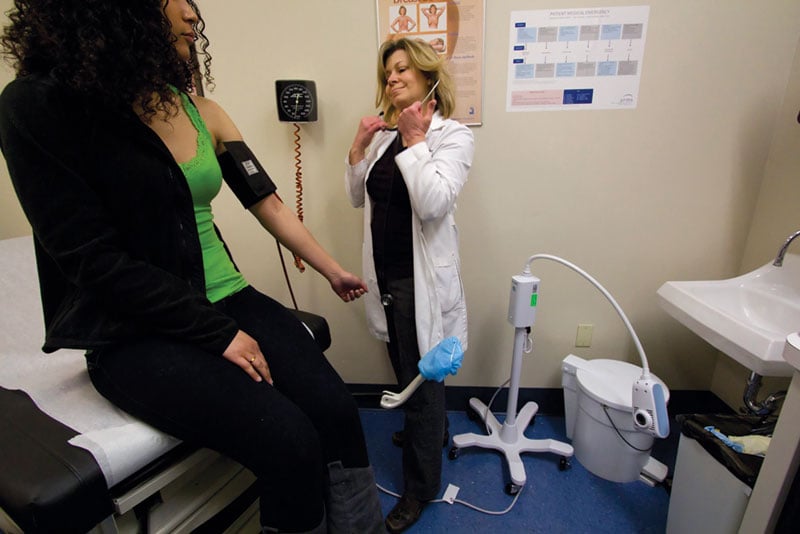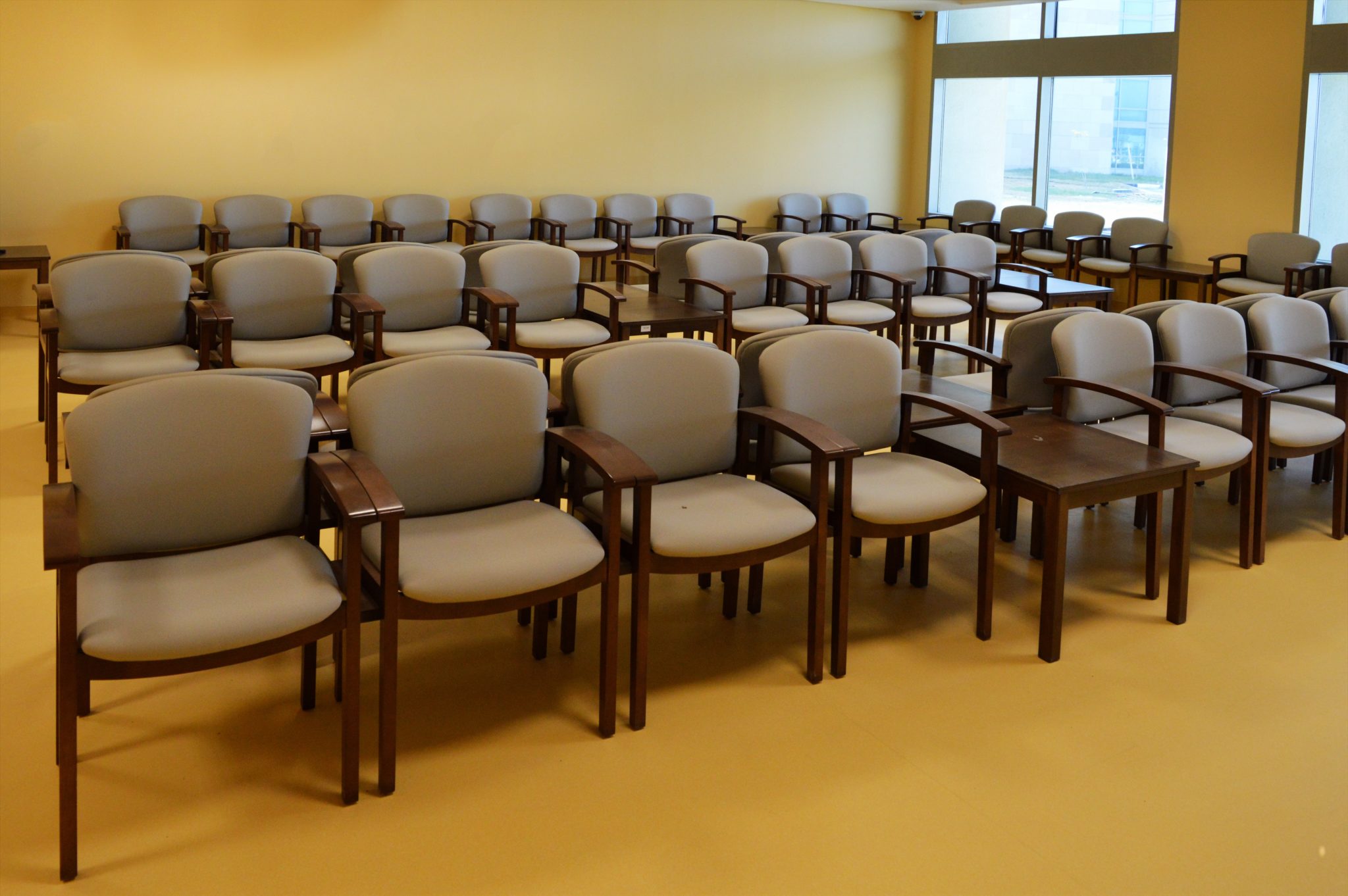
House to Debate Women’s Health Funding

Above: A patient gets her blood pressure checked at the Waco Planned Parenthood.
The House version of the budget, which hits the floor Tuesday for what’s likely to be a spirited debate over funding for state programs, includes approximately $20 million more for women’s health services over the next two years than lawmakers originally proposed in January.
The state currently administers three similar women’s health programs that cover things like annual well woman exams, birth control and cancer screenings for low-income women.
The newest program, the Expanded Primary Health Care Program, created in 2013, is slated to get the funding bump, bringing the total for women’s health services in the House version of the budget to about $130 million per year.
Here is the breakdown of funding for each program:
- Texas Women’s Health Program: $34.9 million in 2016, $35.1 million in 2017
- Expanded Primary Health Care Program: $73.4 million in 2016, $73.4 million in 2017
- Family planning program administered by Department of State Health Services: $21.4 million in 2016, $21.4 million in 2017
In 2011, motivated by a never-ending quest to defund Planned Parenthood, the Texas Legislature slashed family planning funding by nearly $70 million, leaving about $40 million for preventive and contraceptive services for low-income women. A recent study by the University of Texas at Austin’s Texas Policy Evaluation Project, a research group that studies the effects of family planning budget cuts, found that more than 100,000 women lost services after the 2011 cuts and 82 family planning clinics closed. In 2013, the Legislature restored the $70 million and put it into the newly created Expanded Primary Health Care Program, which became a separate item in the state budget. Still, advocates and providers have consistently fought for more money, arguing that the state is only serving one-third of women eligible to receive services.
This session’s House budget also includes a rider that appropriates $4 million more per year for the controversial Alternatives to Abortion program, which largely funds crisis pregnancy centers. Often religiously affiliated, crisis pregnancy centers do not provide medical care, are virtually unregulated by the state and have been found by various investigations to offer inaccurate information designed to dissuade women from having an abortion. As the Observer reported in early March, some Democratic lawmakers on the House Appropriations Committee raised concerns about adding more money to a program that has little oversight or accountability.
Funding levels and riders in the House budget aren’t set in stone, though. Tuesday’s debate will bring a flurry of floor amendments, with lawmakers from both parties trying to add funding to their favorite programs and take money from those they aren’t too keen on.
As of Monday, in reviewing the pre-filed amendments, the Observer found at least 10 amendments by House Democrats that aim to decrease funding for the Alternatives to Abortion program and funnel it to other health and human service programs, like substance abuse prevention and early childhood intervention services. State Rep. Donna Howard (D-Austin) and state Rep. Jessica Farrar (D-Houston), want to increase oversight of the Alternatives to Abortion program, proposing riders that strengthen reporting requirements.
Here is a list of other women’s health amendments and riders to watch for:
- State Rep. Mary Gonzalez (D-Clint) filed an amendment that would allow teenagers who are 15 to 17 years old and already mothers to get contraception without their parents’ consent. Right now, state law requires that all teenagers under the age of 18 get their parent’s permission for birth control. The amendment mirrors Gonzalez’s House Bill 468, which she presented to the House State Affairs Committee in mid-March.
- State Rep. Chris Turner (D-Arlington) has proposed a rider that would ensure sex education programs teach “medically accurate” information to public school students.
- State Rep. Bryan Hughes (R-Mineola) proposes adding even more money to the Alternatives to Abortion program by taking almost $7 million from the Commission on Environmental Quality.
- A House budget rider by state Rep. Sarah Davis (R-Houston) protects the state’s Breast and Cervical Cancer Services program that provides breast and cervical cancer screenings for uninsured women, under attack this session by conservative lawmakers hell bent on, you guessed it, defunding Planned Parenthood.
The budget debate begins at 12 p.m. Tuesday.


